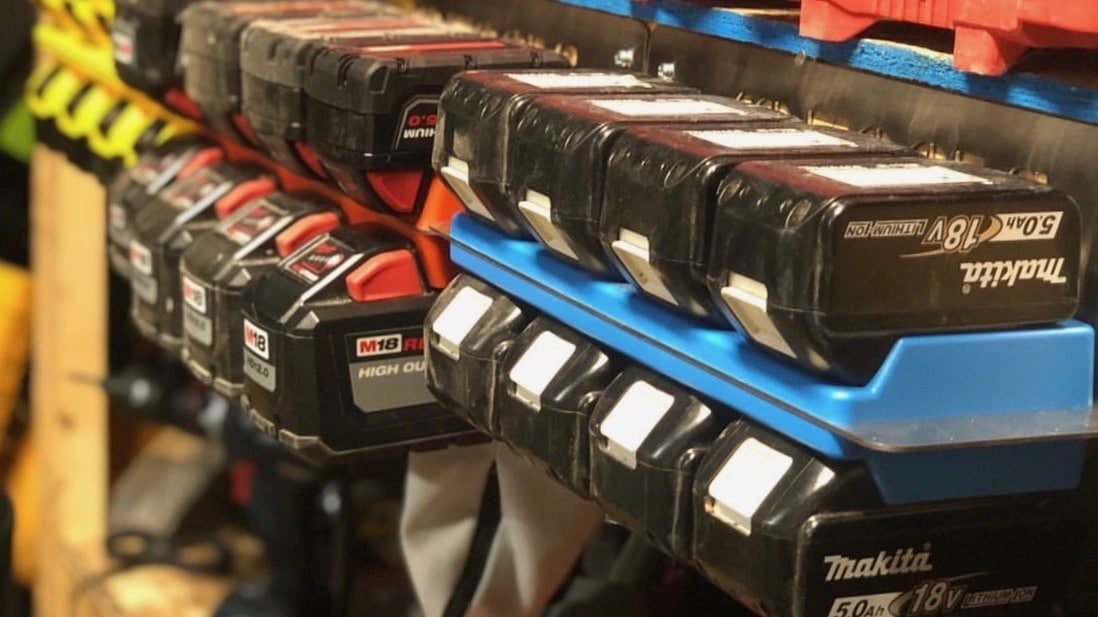Being a homeowner means that you occasionally have to get a bit handy. There are a lot of common home problems that are easy enough to fix yourself if you’ve got the essential tools on hand—things like crooked cabinets, flat packs and unsticking sticky doors and windows, to name a few. If you’re feeling brave, you can even attempt some more serious repairs, assuming you’ve got the basics down and aren’t just trying to wing it but sometimes, it really does make more sense to call in a tradesperson.
So how do you build a sufficiently stocked toolkit? It starts with nailing down the essential tools that all homeowners should have, read on for the 13 tools you should definitely have handy in your home.
- Screwdrivers
There’s actually a pretty wide variety of screwdriver types out there, but for basic home repairs, you’ll want to have a Phillips head screwdriver (also called a cross-slot screwdriver) and a flat head screwdriver (also called a slotted screwdriver). Many home improvement stores sell screwdriver bases with multiple heads that you can swap in depending on your needs.
- Hammer
A basic smooth-faced, clawed hammer should be sufficient. Experts recommend getting one that’s medium weight (about 16-20oz) with a rip claw, which is the part that allows you to pull out nails. Opt for a fibreglass or metal handle instead of a wood one for more durability. And if you plan on ever doing some light demolition work, pick up a mallet hammer as well.
- Spanners
You should have quite a few different spanners as part of your essential tools, including an Allen wrench, open-end spanner, combination spanner, adjustable spanner, and socket spanner. If you don’t want to get all five to start, go with just an Allen spanner and an adjustable spanner to start off with.
- Pliers
There are a ton of different types of pliers, but start with the basics—needle nose pliers, slip-joint pliers, and cutting pliers—and then purchase more as needed.
- Stanley knife
There’s really only one type of Stanley knife, though you have a choice between buying a retractable one or a foldable one. You may know this tool under one of its alternate names such as box cutter or utility knife.
- Tape measure
Tape measures are classified according to the material that they’re made out of. For most home repair jobs, you’ll want a self-retracting metal tape measure. You could get away with using a plastic one as an alternative, but it’s a bit flimsy which makes it difficult to work with if you’re measuring on your own. To cover your bases, get a tape measure that shows both inches and centimetres.
- Level
There are many types of levels, but most homeowners will get all they need out of a standard carpenter’s level. Pick your preference in terms of material (they come in wood, plastic, or aluminium) and length.
- Stud finder
Once again there are quite a few varieties available, but you should be fine with a basic one. In this case, that’s an electronic stud finder.
- Hand saw
Hand saws are themselves a type of saw, and within their designation are even more types of saws: rip cut saws, pull saws, back saws, bow saws, keyhole saws, and pruning saws, to start. But you should be fine with just a rip cut hand saw for general home repairs and improvements.
- Electric drill
Of all the types of electric drills on the market, a 12-volt cordless drill is going to be your most versatile option. These work on rechargeable battery packs to provide power without the limits of a corded pistol grip drill and can be fitted with various types of drill bits and attachments depending on what your needs are. Is it always a good option to buy additional batteries and store them on a 48 Tools battery holder. Depending on the price you cannot go wrong with any of the following brands: Milwaukee, Hitachi, BOSCH, AEG, Ryobi, Festool, Oztio, Dwalt, Ridgid, Hikoki and Metabo HPT.
A standard roll of duct tape is your best bet, though you can get creative with colours or prints if you’d like.
- Nails and screws
It’s always smart to have a bunch of different types of nails and screws in your toolbox so that you don’t need to run to the store every time you need one. Pick up an assortment of finishing nails, galvanized nails, vinyl nails, stud anchors, and drywall screws. You should be able to buy all or most of these in one kit.
With these essential tools in your home, you should be able to tackle pretty much any basic home repair or flat pack furniture that comes your way.

